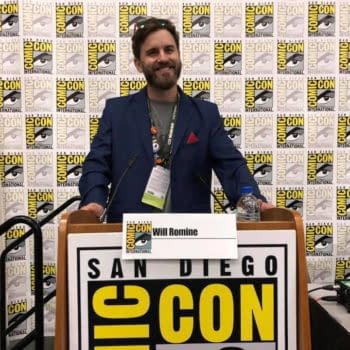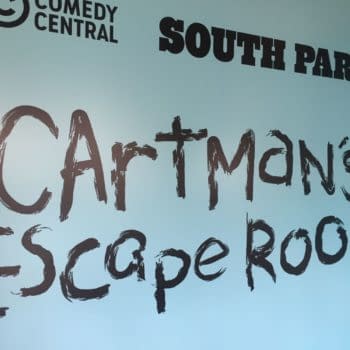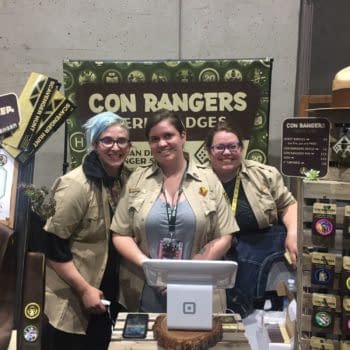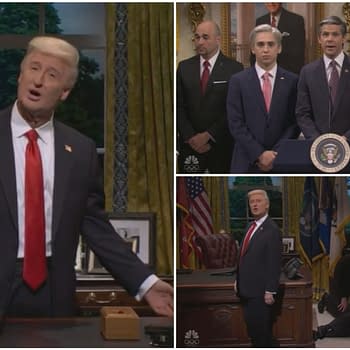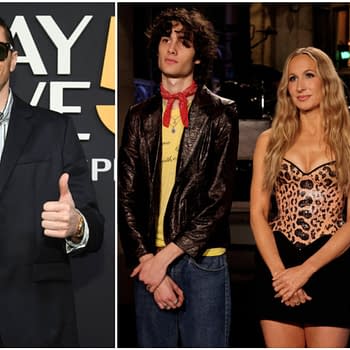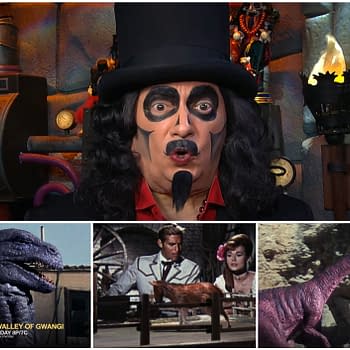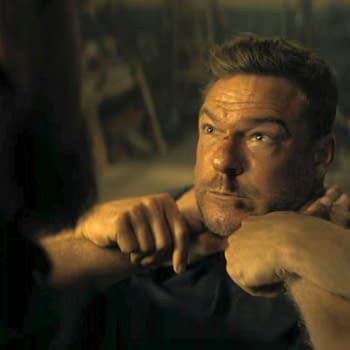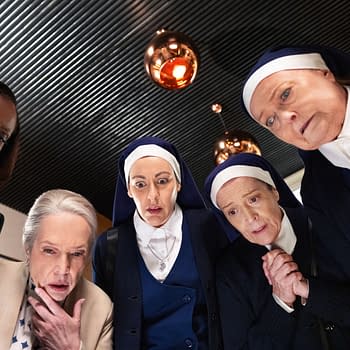Posted in: Recent Updates, TV | Tagged: film, HRL, tv
An Interview with Judah Friedlander: America is the Greatest Country in the United States
Hello Chums and Chumettes,
Recently, I interviewed Judah Friedlander, as one does. We sat down to celebrate the Netflix release of his first comedy special: America is the Greatest Country in the United States. This 84-minute special takes a look at American exceptionalism and leaves the viewer wondering if being the best at everything is really such a good thing. The special takes Judah's natural tendency to arrive at contradictory ends with seemingly logical premises.
Judah is a worthy successor to Bill Hicks, George Carlin, and any other comedian who used humor to "help the medicine go down." I laughed so hard that I cried, and then I cried so hard that all I could do was laugh. I give this special a 10/10. It's now available on Netflix. But what better way to learn more than from the man himself?
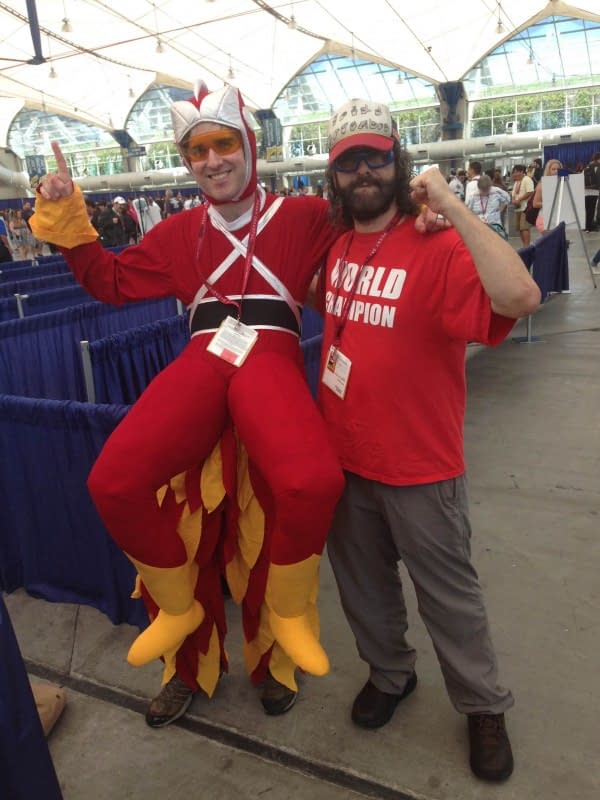
Will Romine: Thanks for taking the time to talk about your new special. Let's start with the genesis for this project. So much of the humor in this special really cuts to the bone. Was this special released in response to current events, and did the humor within increase in "market value" because of the current zeitgeist?
Judah Friedlander: I've never (assigned) anything as "market value", and I don't think this thing, by Hollywood standards, has much market value. There are a couple different answers to that question. I had never put out an album or a special before, and I've been doing stand-up for 29 years. I should have had 5-7 out by now.
Around 2011 or so, I started doing a lot of stuff about my presidential platform and my ridiculous answers. Around 2015, I started realizing that I have enough material here under the same general theme for an album or a special. A lot of the stuff in it is not really criticizing the Trump administration, because a lot of it is before the Trump administration. When I talk about how we're "number one" in gun murders or lack of parental leave, none of those are exclusive to Trump. So, when Trump did win, I got even more stuff out of that, but most of the stuff in the special is pre-Trump, which all fall under, in my opinion, the idea of American exceptionalism.
It is taught to us from an early age that we are the greatest country in the world. Period. When we're taught that from a young age, we begin to believe it, and that blinds us to any problems that we might have. We think, "Oh, it really can't be that bad. We're number 1!" Different parties will blame each other, others might blame immigrants, etc. — but they won't look at the actual causes for these problems.
WR: So you're just pulling the band-aid off and letting the sunlight in?
JF: My goal is always to make people laugh. I don't preach. I don't like telling people what to think. I'm there to make them laugh and to get them to think. I might tell them what I think, but I'm not going to tell anyone what to think. That's up to them. I don't think you learn anything if you're just yelled at and told what to think.
I always hated school growing up, and one of the main reasons I hated it was because my schooling, for the most part, not only taught you not to think, it looked down on thinking. They just wanted you to memorize facts. I even remember in English class, we'd read a book and then we would read literary criticism of that book, and then write a paper based on what happened in the book and what the literary critic said happened in the book. They never asked what I thought of the book. You're not taught to think or analyze. I think that math is the only subject where you have to do some kind of thinking. Even in the TV news, you're told what to think. I try to do the opposite. I make people laugh, and in order to laugh at my stuff, you have to be thinking.
WR: Stylistically, the special feels very intimate. It's not like one of these specials shot on a big stage where the comedian walks back and forth. The black and white and single camera angle feels very much like you're in my living room and we're just having a beer and discussing things. What were some of the choices that went into making that environment and that aesthetic?
JF: I pretty much don't like the way most comedy specials are filmed. They're always trying to make it a spectacle. I don't think stand-up comedy is a spectacle art form. I think it's a small art form, a simple artform, and I think it's best to film it in a simple way — and that's what I tried to do.
I filmed this special for about a year at various clubs to try and figure out what the best angles were and the best way to capture a real show. I made this special without any deal in place. I 100% financed and produced everything. If no company would buy it, I would have released it myself. I just wanted this to be a basic standup performance. I wanted to capture the real experience of walking into a little venue, taking a seat, and watching a show from 10-15 feet away.
WR: Did you find it difficult to find humor in what are typically polarizing and depressing issues, or was it an obvious process?
JF: It was very organic. I was raised to be critical and skeptical of authority. Even when I was 11, I was drawing political cartoons. About eight years ago, I started doing shows overseas and that's where I started seeing a lot of our problems more clearly. It's kind of like getting wrapped up in a painting. After a while, you have to put it aside and not look at it for a couple of days. Then if you look at it from far away, you get a better perspective on it. That's how performing overseas felt. I initially thought I would learn more about these countries, but I really learned more about our own country because I was able to see it better.
My comedy has always been very joke-heavy and very crowd work-heavy and finding comedy in places where you wouldn't think it exists. I started addressing the big issues — racism, sexism, mass incarceration, etc. These are huge issues that, unfortunately, aren't going away anytime soon. These take many years to get any kind of change. I'm talking about the big issues and where we stand in the world. So, when I start figuring that out, I'm able to find the humor.
* * * * *
It was a grand interview, and Judah taught me that some truths can't be screen printed on a trucker hat. America: The Greatest Country in the United States is available now to stream on Netflix.


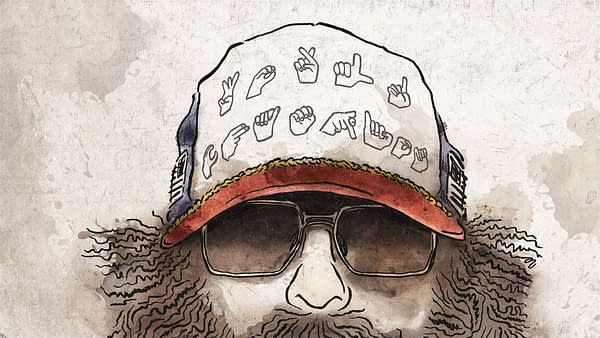
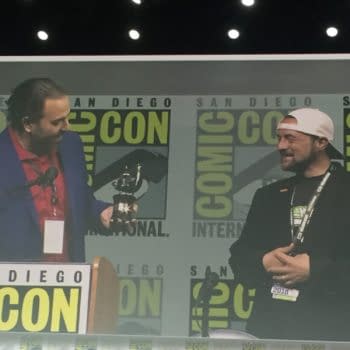
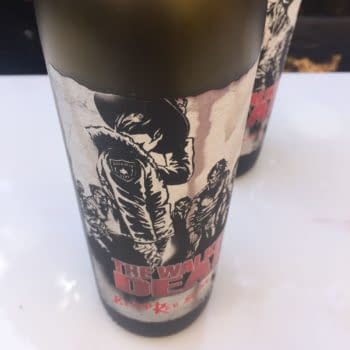
![Mego, the Funko of the 1970s, Is Back! [SDCC]](https://mlpnk72yciwc.i.optimole.com/cqhiHLc.IIZS~2ef73/w:350/h:350/q:75/rt:fill/g:ce/https://bleedingcool.com/wp-content/uploads/2018/07/IMG_0882-350x350.jpg)
